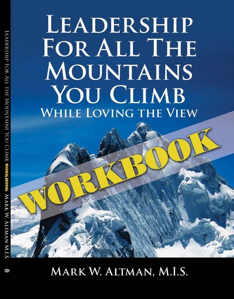Altman Leadership Center Speaking/Consulting web page
Friday, November 28, 2008
A Holiday Wish for My Grandmother and Yours.
Don’t get me wrong, she has had a wonderful life worth celebrating. She was happily married to my Grandfather for over fifty years until he passed away several years ago; she raised three kids and has a bushel basket full of grandkids and great grandkids. She had a career in the banking industry when women didn’t usually have careers outside the home. She traveled quite a bit, including a trip “Down Under”. However, even though she is wonderful to my family and me, this column is not just about her.
As the holidays come near I hope to encourage you to visit the elderly people you might know. This is especially important if you suspect they will be alone for much of the holiday season. Keep in mind, with everyone feeling the pinch of the economy right now, our children and elderly populations are most at risk. So, anything you can do as a family, such as visiting an elderly neighbor or an assisted living facility is always a welcome event.
You will want to call before you go to get the rules of the facility and take their suggestions as to how to proceed. For example, many of the residents have special dietary restrictions that must be adhered to if you are to bring foodstuffs. Many facilities keep their residents busy, so again call ahead to make sure you come at a time when you are not interrupting the schedule and the residents will be able to visit with you. It is precisely the human interaction that most residents crave the most.
On the other end of the age spectrum are the children of the community and like most grandmothers, children are especially dear to mine. The Children’s Village is always in need of volunteer help, toys, food items and of course financial support. You can find them on Hanley Ave. or at http://www.thechildrensvillage.org/. The work they do is invaluable to the community and a life saving influence for the children they serve.
Most of us are reminded of our social obligations around the holiday season with columnists who publish the obligatory holiday columns such as this one, but I hope to call us all to action more often than once a year, and I hope that each of you will respond in the way your talents and resources allow. I am sure it is what my grandmother, and likely yours, would want us to do.
Mark Altman is a speaker and leadership consultant with the Altman Leadership Center. Mark has completed graduate work in Marriage and Family Counseling and is working on a PhD in Leadership studies at Texas A&M University. He is happy to speak or provide a workshop for your organization and can be reached at mark@taolc.com.
Sunday, November 23, 2008
Holiday relatives are coming back!
Last year I published a guide to not only survive the holiday season, but actually enjoy the time with family, and come to the New Year admitting those crazy people really are related to you and not just some unfortunate clerical error at the hospital. I am going to print a reminder of the guide and add a couple of points to build upon the wonderful progress we all made last year.
The first thing to keep in mind is to set reasonable expectations for the holiday gatherings. If your family resembles a 3D version of Bart and Homer Simpson during the year, it is highly unlikely you will function like the Huxtables, or George Bailey’s wonderful holiday family. Stress and proximity tend to cause old wounds to open, not help them heal; but, if you can manage your expectations then at least you may experience less stress. While it may be a tempting thought, more eggnog is not usually the healthiest answer to holiday family challenges.
If you have children coming home from college, remember to negotiate expectations in advance such as: plans over the holidays, bringing home boy/girlfriends, visiting friends, household rules such as curfew, also try to discuss grades beforehand so there are no ugly holiday surprises.
Celebrate in a location that makes life as easy as possible for the majority of members. If someone finds it difficult to travel because of pregnancy, infirmity or illness, try to bring the gathering to him or her. Just because the gathering is in one member’s home, doesn’t mean they have to do the majority (or any) of the cooking.
While on the subject of cooking, if you have special dietary needs or wants, don’t expect the hosts to provide for your situation. If you are diabetic or vegetarian, bring your favorite dish with a little extra so others may try it as well.
If you are the host, invite a stranger to the gathering. By inviting a friend to the occasion who has nowhere else to go, you prevent them from spending the holiday alone and can add a complementary personality flavor to the kitchen flavors, while sometimes bringing family members together as they make the guest feel welcome.
Learn to ask for, and accept, help! If you are kept prisoner in the kitchen, then not only are you run ragged and can’t spend time with family; they do not get to spend time with you either. Everyone from children, to adults not cooking, can do chores like set and clear the table or do dishes.
Last, try to think of “the other” first when making decisions or before getting angry when your expectations aren’t met. Whether “the other” is your parent, your child, your spouse, sibling or an ex-spouse, try to put their needs first without resentment, but with patience and a sense of love. You may find the feelings reciprocated, but even if you don’t, you will have found the true meaning of the holiday season.
Mark Altman is a speaker and leadership consultant with the Altman Leadership Center. He has graduate work in Marriage and Family Counseling and is the author of Leadership For All the Mountains You Climb. He can be reached at mark@taolc.com.
Tuesday, November 18, 2008
Teens and the "Idiot Box"
Two weeks ago the Rand Corporation released a study showing that teens who watch racy shows are twice as likely to become pregnant or be responsible for a pregnancy over the next three years. Researchers rightly point out, the reasons for teen pregnancy are both diverse and complex and therefore have no single determining factor as to which kids will get pregnant and which won’t. However, the kids who watched the most sexual content on TV were twice as likely to be involved in a pregnancy as the kids who watched the least sexual content.
A different study conducted several years ago by some of the same researchers, indicated that kids who watched sexual content on TV had sex at earlier ages. You might be tempted to think the solution is simple: limit or eliminate the TV sexual content teens see. Of course, this solution doesn’t take into account the sexual content teens are exposed to on the Internet, in magazines, music and movies and ignores the technical challenges and Constitutional concerns in limiting such content for kids while not interfering with rights of the general public.
Researchers point out that another aspect of media depictions of sexuality is those depictions are not realistic. For example, all media formats are notoriously silent on the consequences of sex such as diseases, pregnancy and the moral implications. The limited information available is either wrong or not in keeping with the message parents would like to send.
For these reasons, the authors are not calling upon any particular TV show, channel or network to be held accountable. Instead, they believe more realistic plotlines, and frank discussions of consequences will be of greater benefit to both parents and their teens.
Kids today have greater success of information than at any time in human history. Compounding this phenomenon is the fact that kids are maturing earlier physically, but later socially. Menarche is occurring sooner for girls, but they marry later. For boys, puberty is sooner, but the age they are expected to enter the work force is later for most. The place where these factors collide is where this problem lives.
In our own family, now that we have teenagers, we have found success in monitoring what the kids watch; not to limit any particular programming, but to know what they are watching in an effort to be able to have frank, sometimes uncomfortable, discussions. We have found it to be far more important to ask their opinion of these situations, listen carefully, and then ask other questions to allow them to discover answers for themselves. Lectures, especially lectures disconnected to their reality are of little perceived value and probably limited real value as well. To use this method a parent must be confident in their values system and their ability to discuss it intelligently.
As parents, there is an attraction to shielding our kids from depictions of explicit sex, violence or drug use; much in the same way that I am not ready to have the kids start dating. However in the case of dating, my wife’s wisdom is prevailing. She points out that if they are dating for a couple of years while living at home, then we can guide them through the process; but if they were to wait until after they are married (my favorite option), then we would not be there to help them be successful.
Mark Altman is a speaker and leadership consultant with the Altman Leadership Center. Mark has completed graduate work in Marriage and Family Counseling and is working on a PhD in Leadership studies at Texas A&M University. He is happy to speak or provide a workshop for your organization and can be reached at mark@taolc.com.
Thursday, November 6, 2008
Rx for a sick Nation
According to the U.S. Census Bureau Idaho has 213,000 people, or 14.7 percent of its population were uninsured in 2004-5. The nation as a whole has 45.7 million without health insurance and many of those are children and the elderly. If you believe this is bad news, then the worse news: these numbers are pre-economic downturn and we don’t have numbers after the downturn.
Like most policy decisions, this one has numerous facets with many stakeholders and each of the facets of the problem can lead to any number of unintended consequences. Lack of health care for children for example, feeds a number of problems such as avoidable illness, higher medical bills for ailments that aren’t caught early, and lower academic performance in school.
Part of the challenge for policy makers is medical science itself. On the one hand we live longer than ever before in human history, and on the other the medical costs for procedures is higher than ever. American companies, trying to increase profits so stockholders do not take investment monies to countries where health care costs are much less (partly because companies are not expected to provide employee health care benefits), are decreasing benefits. We now have medical procedures that can heal problems that certainly would have been fatal even 25 years ago.
Some of the debates the new President will have to judge are, “As a society, what resources are we morally and ethically obligated to commit in order to lengthen a lifespan?” Connected to that question is, “What resources do we commit to early detection and preventative care?” Last, “To what ends can society demand its citizens take care of themselves?” “Do we continue to make smoking harder and harder to do through taxation and limiting where people can smoke?” “Should we “punish” drinking and poor dietary habits?” “Do we mandate physicals for school age children as we do immunization?”
We have had more political participation in this election than in almost any other in the nation’s history. However, the new President, whichever candidate wins, will need the help of an educated, engaged, populace interested in solving the challenges like this one that have no easy answers. Please stay excited and involved by writing your political officials and attending town halls and meetings, making your feelings known. Your family’s medical and financial health and the nation’s economic well-being depend on it.
Mark Altman is a speaker and leadership consultant with the Altman Leadership Center. Mark has completed graduate work in Marriage and Family Counseling and is working on a PhD in Leadership studies at Texas A&M University. He is happy to speak or provide a workshop for your organization and can be reached at mark@taolc.com.
Monday, November 3, 2008
The Poitical Hatfields and McCoys
While it can be a source of stress in a family to be divided over something as personal as political party or policy position, I argue assuming the family handles this challenge well, this is a sign of strength and healthy function. If everyone in a family seems to agree politically or on social positions, in addition to being highly unlikely, this could be a sign of a patriarch or matriarch who has failed to encourage independent thinking in their progeny. However, if you are bemoaning your family’s abundance of independent thinking allow me to suggest some tips that may restore your sanity, at least for this election cycle.
1. Don’t take it personally. Much like people can when rooting for a favorite sports team, sometimes we are too invested in the victory of a particular side.
2. Argue fairly. Try to keep the debate on topic and avoid belittling or calling names. Telling a child, “When you get older you will know better” or a parent, “You are just too old to understand”; is both outside the rules of debate and demeaning.
3. If one party believes the debate becomes acrimonious or hurtful, then both parties should agree to avoid talking about politics at least for a time.
4. Our nation seems to favor switching between the two major parties, especially at the national level; however, we see this phenomenon at every level and it is probably a healthy thing for our system.
5. Remember that our political system has survived bad office holders at every level of government. If the “wrong” candidate wins, don’t be overly alarmed as most office holders end up better than our fears and worse than our hopes.
6. Keep in mind that even more than our nation and communities, your families have more in common in terms of ideology and experiences that bring you together than divide you.
For all of us, voting is both a right and a privilege that we wish to pass along to our children. As parents our hope should be that our children exercise their rights even if they come down on the other side of issues or candidates than we do. Please vote on Nov. 4 for the candidate of your choice.
Mark Altman is a speaker and leadership consultant with the Altman Leadership Center. Mark has completed graduate work in Marriage and Family Counseling and is working on a PhD in Leadership studies at Texas A&M University. He is happy to speak or provide a workshop for your organization and can be reached at mark@taolc.com.







